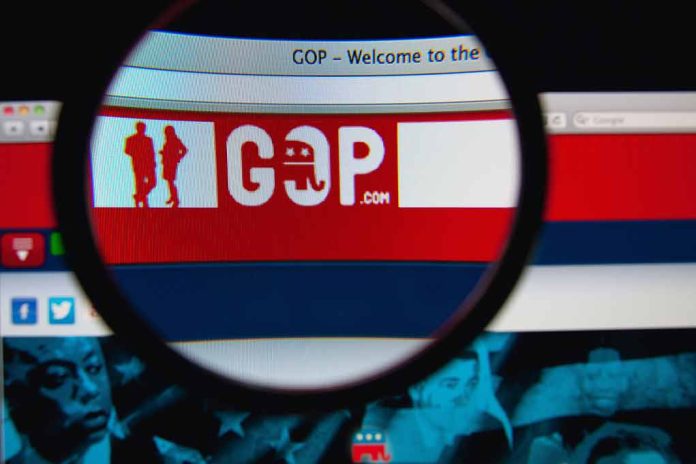
The Republican Party’s transformation signals major shifts in immigration and public health policies as they near complete control of the U.S. government.
At a Glance
- Republicans are close to controlling the White House, Senate, and House, potentially giving Trump a sweeping mandate for policy changes.
- Trump plans to reinstate his first-term immigration policies, including a large-scale deportation operation.
- Energy policies may prioritize American energy independence and job creation by responsibly expanding domestic fossil fuel production.
- Significant changes to government operations are planned, including relocating agency headquarters and altering civil service requirements.
Republican Party’s Consolidation of Power
The Republican Party’s recent electoral successes have positioned them to potentially control all branches of the U.S. government. This consolidation of power could lead to sweeping policy changes, particularly in areas such as immigration and public health. The party’s confidence in retaining the majority in the House of Representatives suggests a forthcoming wave of policy overhauls both domestically and in foreign affairs.
Republican House Speaker Mike Johnson expressed the party’s optimism, stating, “This historic election has proven that a majority of Americans are eager for secure borders, lower costs, peace through strength, and a return to common sense.” This sentiment reflects the party’s interpretation of their electoral success as a mandate for significant policy shifts.
Immigration Policy Overhaul
One of the most prominent areas slated for change is immigration policy. Former President Donald Trump, who remains a central figure in the party, has outlined plans for what he calls the “largest deportation operation in American history.”
This stricter approach to immigration signals a clear shift from current policies. The proposed changes highlight the Republican Party’s commitment to securing the border and enforcing immigration laws, emphasizing the importance of national security and prioritizing legal immigration pathways.
Environmental and Energy Policy Shifts
Environmental policy is set for considerable changes, with the Republican agenda focusing on expanding fossil fuel production and reconsidering international climate agreements. This approach may open public lands to oil and gas development and adjust protections for national parks and endangered species.
These shifts reflect the Republican Party’s commitment to energy independence and economic growth through resource use, though they may face opposition from environmental groups and certain states.
Government Operations and Civil Service
The Republican agenda includes plans to reform government operations by relocating agency headquarters and updating civil service requirements. These changes aim to make the government more efficient, accountable, and reflective of conservative values, aligning federal agencies with the priorities of American communities. This approach seeks to ensure that the government serves the people effectively and supports a smaller, more responsive federal structure.
In summary, the Republican Party’s consolidation of power represents a pivotal moment for America, with potential to reshape the nation’s direction on immigration, energy independence, government efficiency, and public health. With a unified government, Republicans are positioned to advance policies that align with core conservative principles: secure borders, economic strength, reduced federal overreach, and a renewed focus on American sovereignty. This agenda reflects a commitment to restoring accountability in government, promoting self-reliance, and protecting the interests of hardworking Americans, ensuring that the federal government truly serves the people it represents.
For many conservatives, this vision embodies a return to common sense and freedom for the American people.





